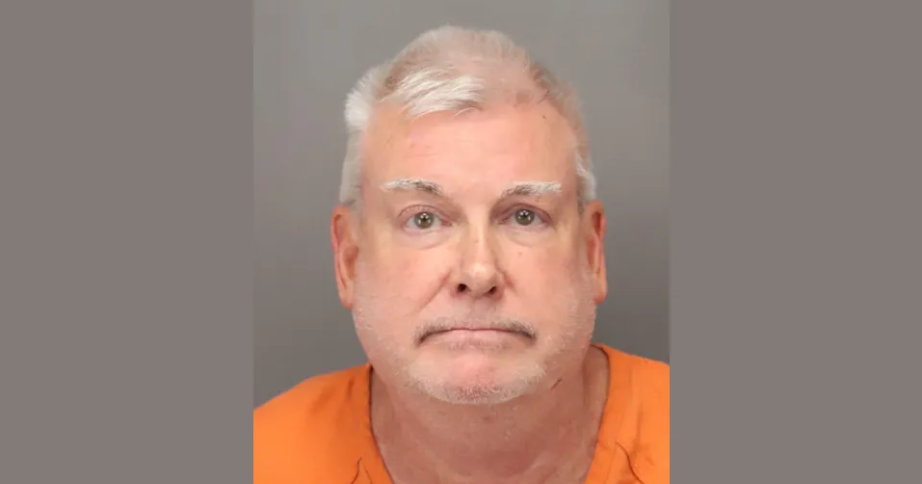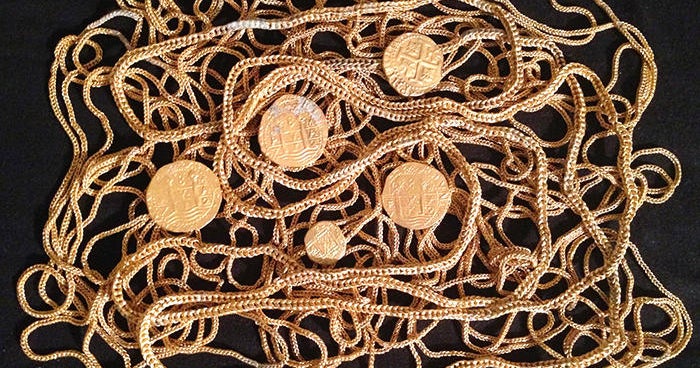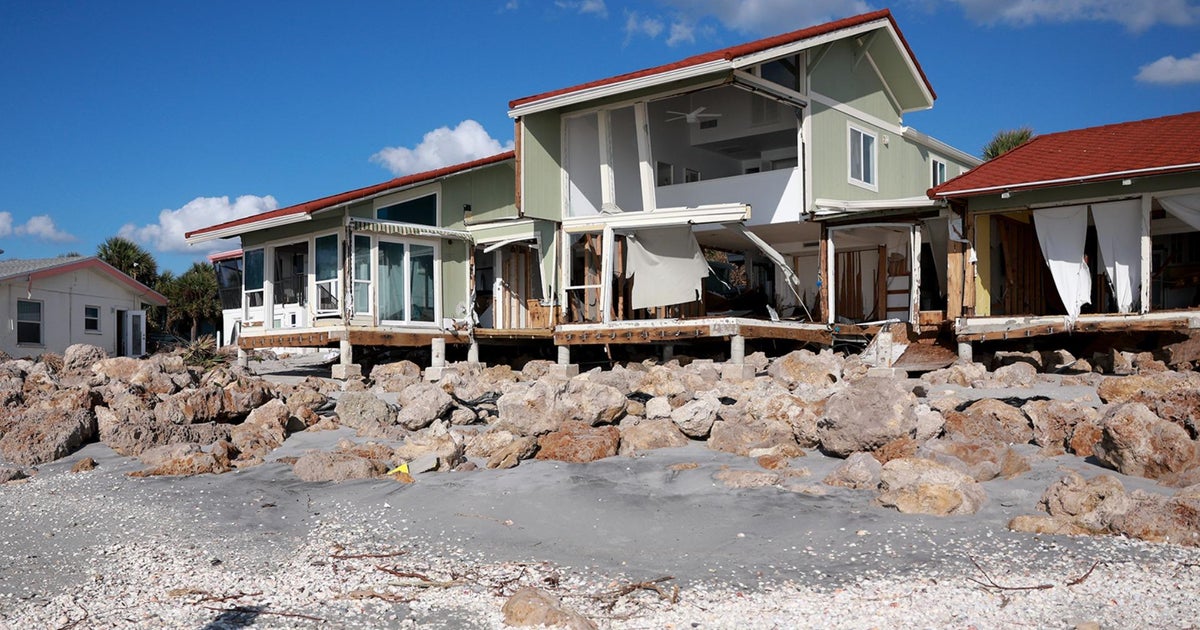Gov. DeSantis Tops $100 Million For Florida Re-Election Race, Sends Signal To 2024 Republican Field
MIAMI (CBSMiami/CNN) - Florida Gov. Ron DeSantis has raised more than $100 million for his re-election effort, the first gubernatorial candidate in the Sunshine State, and perhaps the entire country, to reach the nine-figure milestone solely through donations.
The staggering sum not only gives DeSantis an unprecedented leg up on the Democrats attempting to unseat him this November, but it also sends an indisputable message to the potential field of 2024 Republican presidential hopefuls that there is already a promising contender with deep support from major donors and grassroots voters alike.
It's the kind of fundraising chops that "catapults him into the top tier of potential GOP candidates," said Scott Reed, a veteran GOP operative and former top strategist for the US Chamber of Commerce.
"He's been asking for big licks -- $5 million and $10 million per fundraiser, and he's getting them and that's a warning sign," Reed said.
"DeSantis is the talk of every Republican cocktail party and every organizational meeting. His support spans the money class and the movement conservatives. And that's a strong combination early in the game."
The latest fundraising numbers for DeSantis won't become official until Monday, the state's deadline to report March totals.
However, a CNN review of contributions posted to the website of his political committee, Friends of Ron DeSantis, showed a March haul of $6.1 million.
His campaign and political committee, which are separate entities both working toward his reelection, had previously reported raising a combined $96 million this cycle through February.
While the proliferation of political committees and differences in campaign finance laws makes it difficult to compare fundraising numbers across state boundaries, it appears DeSantis is the first candidate in any state to eclipse $100 million entirely on donations.
According to data maintained by the campaign finance watchdog OpenSecrets, the two past gubernatorial candidates who amassed $100 million campaigns -- former business executive and 2010 GOP nominee for California governor Meg Whitman and Illinois Gov. JB Pritzker, whose family owns Hyatt Hotels -- funded their campaigns almost entirely with their own money.
DeSantis, though, is not independently wealthy.
Prior to becoming governor in 2019, DeSantis served less than three terms in Congress.
Before that, he was a lawyer in the Navy.
His net worth is $348,000, according to his most recent financial disclosure form.
Instead, DeSantis has broken fundraising records by relying on a mix of sources.
He has received significant contributions from the state and national parties and has crisscrossed the country to raise money from wealthy GOP donors.
His political committee has collected large checks from influential Florida businesses and small donations from all 50 states.
DeSantis has also tapped into former President Donald Trump's donor network, including Home Depot co-founder Bernie Marcus, WeatherTech CEO David MacNeil, and shipping magnate Richard Uihlein and his wife, Elizabeth.
All have given six-figure sums to DeSantis' political committee.
Because the money was raised for a state race, it is unlikely it can be used to assist DeSantis in a federal campaign, should he run in the future.
But former President George W. Bush demonstrated how a relentless fundraising blitz in a state race can boost a prospective presidential bid.
Like DeSantis, Bush 1998 was a Republican incumbent widely seen as a serious contender for the next presidential race.
Bush signaled he would be a formidable candidate for the White House by putting up gaudy fundraising numbers en route to a historic margin of victory in the Lonestar State.
"I've seen a lot of people raise that kind of money before. It doesn't always mean success," said Charlie Black, who worked on Bush's presidential campaign.
"Bush was successful with that strategy. The biggest thing DeSantis has to do is keep his eye on the ball and make sure he gets reelected."
Other potential 2024 contenders are noticing DeSantis' fundraising prowess -- including Trump. The former President has closely monitored which former donors have opened up their checkbooks to the Florida governor, people close to Trump previously told CNN.
Trump reiterated to The Washington Post this week his belief that he "made" DeSantis when he endorsed the underfunded and lesser-known congressman in the 2018 GOP primary for Florida governor.
He added that he doesn't believe DeSantis -- or any other ally -- will run in 2024 if the former President is in the race.
"If I ran, I can't imagine they'd want to run," Trump said. "Some out of loyalty would have had a hard time running."
One adviser to a potential presidential candidate acknowledged that important Republican donors likely see in DeSantis "an opportunity to get in on the ground floor" of a future presidential campaign -- one featuring the only candidate who comes close to rivaling Trump's support in early 2024 polling. But the adviser added that there is more for DeSantis to prove than being a successful fundraiser.
"Despite all the attention he's getting, DeSantis is largely untested," the adviser said.
"When you look at the potential 2024 field, he stands out as the person who has never faced a monumental challenge and that's bound to happen over the next year and a half. It's going to be a pivotal moment for him."
The DeSantis Advantage
Other 2024 hopefuls may have to tiptoe around Trump and raise money through political action committees with vague mission statements about helping elect Republicans.
But as a candidate running for reelection in a high-profile state, DeSantis doesn't have to make excuses to have an audience with big-name Republican donors.
The list of donors to his gubernatorial campaign is a who's who of the GOP money class: businessman John Childs, hedge fund manager Paul Tudor Jones, ex-private equity financier and former Illinois Gov. Bruce Rauner, San Francisco Giants owner Charles Johnson and beef jerky mogul Troy Link, among others.
It's a mix of past backers of presidential campaigns, Trump allies, and some people, such as hedge fund manager Ken Griffin and Interactive Brokers Group chairman Thomas Peterffy, who are looking beyond Trump in 2024. Peterffy told Bloomberg News last year that he would prefer to see DeSantis as the Republican presidential nominee in 2024 because he is less impulsive than Trump.
Griffin ruled out backing Trump again.
Rob Stutzman, a California-based GOP consultant, said DeSantis' fundraising to date "certainly confirms the conventional wisdom that he is the non-Trump front-runner for the nomination."
"Demonstrating that kind of fundraising network is what other candidates will notice as they assess whether to enter the field to compete against him," he said.
"It may be an issue that continues to engender Donald Trump's jealousy, too."
Nick Iarossi, a lobbyist, and top DeSantis fundraiser said the governor's support among donors grew during the coronavirus pandemic when he bucked medical experts and lifted restrictions on businesses and schools before most other states.
He's picked up more support as he's become a frequent foil for President Joe Biden, often challenging White House policies on coronavirus mitigation measures, vaccines, and immigration.
"It makes him a formidable national contender for sure," Iarossi said of DeSantis' growing fundraising network.
"But I also think there's a bigger message and one the governor hopes the people in the party see and that is doing what you say you're going to do and being unapologetic about it is going to lead to support."
DeSantis has another advantage fueling his record-breaking fundraising push: Florida campaign finance laws do not limit contributions to political committees.
As it is, deep-pocketed Republican donors from across the country and prominent Florida corporations have cut five- and six-figure checks to directly support DeSantis' reelection effort.
Griffin contributed $5 million in a single donation.
The Republican Governors Association has put in more than $10 million.
It is an edge also shared by Texas Gov. Greg Abbott, another potential 2024 GOP contender first facing a reelection fight this year.
Abbott raised $93 million through February 19 for his race against Democrat Beto O'Rourke, according to OpenSecrets.
Pete Quist, the deputy research director at OpenSecrets, has studied gubernatorial fundraising data for years.
He said incumbents benefit when there are no contribution limits "because they get money from interests and the checks come in earlier and they come in larger."
DeSantis ran for governor in 2018 as the antidote to a state government that he portrayed as overrun by lobbyists and corporate money.
DeSantis' campaign called his Republican primary opponent, establishment favorite Adam Putnam, a shill for "special interest money" and a "swamp dweller."
Borrowing a line from Trump, DeSantis promised to "drain the swamp in Tallahassee that needs to be drained just like Washington."
Since getting elected, though, DeSantis' political ambitions have benefited from the largesse of some of Florida's most powerful and politically connected entities.
His political committee has raised nearly $3 million from the same companies and industry-affiliated political committees that donated more than $150,000 to Putnam, including Disney, utility companies, and a PAC run by state Realtors.
DeSantis' campaign declined to comment for this story.
Democrats Are Campaigning From Behind
Florida, with its diverse and disparate communities spread across a half dozen major television markets, is a notoriously costly state to mount a campaign.
Candidates are expected to raise fistfuls of cash or pony up from their own pocketbooks to be competitive in statewide races.
But even by Florida standards, DeSantis has become an outlier.
He has already surpassed the record $88 million raised during the 2014 election cycle by his predecessor, now-Sen. Rick Scott, a former health care executive who helped finance his own campaign.
DeSantis is on pace to soon eclipse the $113 million he and his 2018 opponent, Democrat Andrew Gillum, combined to raise in their costly, tight race for governor.
And there are still seven months until Election Day.
Meanwhile, the Democrats attempting to defeat DeSantis are still finding their footing.
Through February, US Rep. Charlie Crist, a onetime governor as a Republican and the Democratic nominee for governor in 2014, had raised $7.1 million with $4.7 million still on hand.
State Agriculture Commissioner Nikki Fried had about $3.6 million left of the $6 million she reported raising through February, while a third candidate, state Sen. Annette Taddeo, had raised less than $1 million.
The primary election is on August 23.
The Florida Democratic Party did not respond to questions about its plan to compete with DeSantis' fundraising advantage.
Steve Schale, a Democratic campaign consultant, expects money to flood into Florida once the party has a nominee, but DeSantis, he said, "is still going to outspend, even in the rosiest scenarios on my side."
The gap in resources will allow DeSantis to "completely dictate the terms of the conversation" throughout the campaign, Schale added.
"When you're underfunded, you have to constantly make bad choices," said Schale, who was involved in past gubernatorial campaigns.
"You're choosing between cutting off your right arm or your left arm and hoping you don't bleed to death."
Perhaps most daunting for Democrats is how much cash DeSantis is still sitting on.
His campaign had $88.5 million on hand through February.
One longtime Tallahassee-based Republican adviser said the joke around the capital is that the DeSantis campaign team is the "poorest group of rich people in the state."
Not unlike Trump, DeSantis has a reputation for scrutinizing every dollar spent by his campaign.
Despite his growing political profile, DeSantis didn't have campaign staff until relatively recently, and it remains a pretty slim operation.
"Eventually, those resources will be deployed," Iarossi said.
"He's frugal. That's his reputation. And that's part of the reason people feel good giving to him."
Last year, the second-largest expense for DeSantis' political committee was $560,000 spent on inventory for campaign merchandise.
That's not typical for a campaign with this kind of cash flow.
But DeSantis has generated several rounds of headlines -- known in the political world as earned media -- by pushing out provocative campaign swag, like "Don't Fauci My Florida" koozies and "Fauci Can Pound Sand" flip flops -- after chief Biden medical adviser Dr. Anthony Fauci -- and a sleeve of two golf balls that says "Florida's Governor Has a Pair."
"Most of those, like the flip flops, he comes up with the ideas," Iarossi said.
"He's reviewing budgets and new hires and how much is being paid. He does not want to waste campaign dollars. He's very particular."
(©2022 CBS Broadcasting Inc. All Rights Reserved. Cable News Network, Inc., a Time Warner Company, contributed to this report.)



